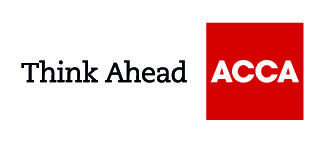As a result of the pandemic, the employment landscape has changed pretty dramatically.
While many industries are seeing a reduction in new roles or even complete hiring freezes, accountants remain in high demand in Australia. Read on to understand why, and find out where this exciting industry could take you.
Are accountants needed in Australia?
The short answer: absolutely! Geoff Balmer is the founding director of Richard Lloyd Accounting Recruitment and explains that pre-coronavirus, the agency had one role for a new graduate per month. Now, Richard Lloyd is recruiting for around six graduate accountant roles per month.
This is because Australian businesses previously relied heavily on foreign accountants to service their needs, which is currently impossible due to border closures and travel restrictions. This means there is more accounting work available than local accountants are able to take on – so it’s a great time to study accounting in Australia!
Is there a future in accounting?
There certainly is! In discussing the pros of studying accounting in Australia, GradAustralia explains that most executive accounting roles are currently held by people in the “Baby Boomer” generation (those born between 1946 and 1964) who are expected to retire in the next 10 years. This could allow for quicker career progression for graduate and junior accountants, as many roles across various levels will open up. Plus, with the average accountant salary starting at $50,000 per year, the future certainly looks bright for those studying accounting in Australia.
As with other industries being impacted by artificial intelligence, many of the mundane tasks traditionally associated with an accounting role could also become automated. This will create an 80 to 90 per cent reduction in the time accountants have to spend on manual tasks, allowing them to focus on more challenging and exciting activities. As well, technological advancements will transform traditional accounting practices to see on-demand, real-time reporting as standard, meaning accountants can work in more agile, proactive ways. Given that younger generations have been raised with technology, graduate accountants are likely to be technologically fluent and comfortable using many types of software, making them attractive employees.
The most in-demand skills in accounting in 2021
COVID-19 has resulted in several companies implementing a hiring freeze due to budget restrictions. Fortunately, a recent survey by recruitment company, Hays, reports that accounting is among the top three priority positions employers are looking to hire in a post-coronavirus world. Small and medium-sized businesses, in particular, were negatively impacted by the pandemic. Accountants play a crucial role in supporting the industry, providing guidance to businesses in accessing government support, interpreting policies or supporting them through insolvency.
The survey also shows that soft skills are incredibly important to employers. Communication sits at the top of the in-demand skills list, with 45 per cent of employers seeking candidates with this skill. Adaptability comes in second at 40 per cent and teamwork third at 39 per cent. These soft skills are a core focus in a post-COVID world, where many employees are still working from home.
Professional accounting bodies such as CPA, ACCA and CAANZ continue to highlight the skills accountants should focus on in order to thrive in their role. Their reports reveal the need to integrate new digital solutions and capabilities to optimise traditional ways of working and reporting. Given that COVID-19 has caused huge changes in every workplace, these skills are even more important in 2021. In a Future Ready: accountancy careers in the 2020s report by ACCA, you can explore how new career zones will play out in future and the key skills to take you through your accounting career.
What accounting sector is right for me?
The Association of Chartered Certified Accountants (ACCA) explains that accountancy is a unique function, as it is essential to every business and every industry – large or small. This provides accountants freedom in steering their career towards sectors and roles that interest them most. “Sector” refers to a specific area that you may choose to work in as an accountant, which includes, but is not limited to:
- Public service/Not for profit: government and charitable organisations.
- Financial services: personal and private banking, investments and pensions.
- Public practice: firms that provide services to a wide range of clients.
- Corporate: in-house positions within for-profit businesses.
- Shared services: finance, human resources (HR) and information technology (IT). Teams are combined, resulting in cross and up-skilling for accountants.
- Outsourcing and advisory services: working at multiple businesses across many sectors that do not have in-house accountants.
Take our quiz or read more here to understand which accounting sector is right for you.
Can international students find employment in accounting in Australia?
While accounting is one of Australia’s most in-demand industries, finding employment in any field is no easy feat, and this has been made all the more challenging in the face of the global pandemic. The virus’ effects on the Australian workforce are undeniable. If you are struggling to find work in accounting at the moment – don’t worry. There are certain things you can be doing as an accounting student or graduate to improve your employment prospects until the right role comes along.
There are a number of high-priority industries where the Australian Government has lifted the 40 hours per fortnight working cap for international students. Working in hospitality or tourism can be extremely beneficial in helping you develop vital soft skills, such as communication, which you will need when taking on a role in accounting.
Alternatively, volunteering can be an excellent way to help you find a job, as you improve a range of soft skills, demonstrate a strong work ethic, and start to build a professional network. Here are some great places to start searching for volunteering roles.
Roles in the Australian accounting industry
Once you’ve studied accounting in Australia, there are dozens of roles you can choose from within your preferred sector, including but not limited to:
- Internal or external auditor
- Compliance auditor
- Financial or management accountant
- Chief Financial Officer (CFO)
- Business or financial analyst
- Forensic accountant
- Risk manager
- Partner
- Tax accountant or bookkeeper
- Treasurer, payroll, accounts payable or accounts receivable
- Funds or credit control manager






